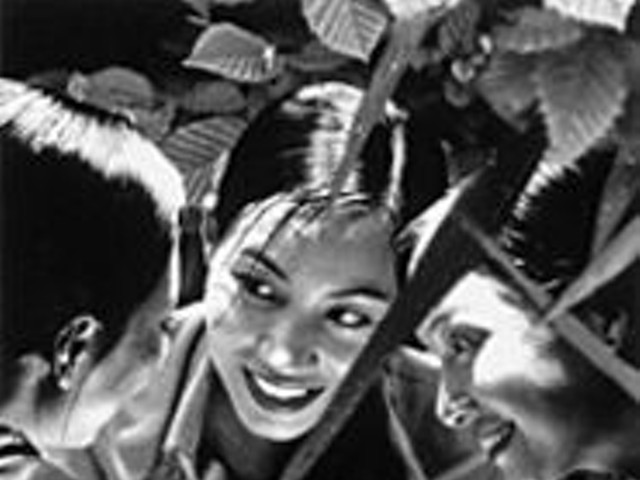It's of little surprise that the press notes for Rush Hour 2 begin by mentioning how much its 1998 precursor pocketed in revenue: some $250 million worldwide. The current incarnation has no reason to exist other than to pick the pockets of those who found Rush Hour vaguely amusing; it does little more than rehash culture and kung-fu clashes, interrupting both with a mystery without a question mark (except, perhaps, who cares?). Once more, Chief Inspector Lee (Chan) and Los Angeles police detective James Carter (Tucker) pair up to square off against a bad guy who exists only as plot point and prop. This time, the role belongs to John Lone as Ricky Tan, the head of the Triad and, just five years back, Lee's father's cop partner. Alan King also shows up as a greedy real-estate developer, which makes one wonder if Rush Hour 2 wasn't written during a nosh at the Friars Club. And the setting is little changed: The movie kicks off in Hong Kong (three days or so after the ending of the first film), then moves quickly to L.A. and Las Vegas. It ends at the airport, with Chan and Tucker bound for New York. Quick -- guess where Rush Hour 3's gonna take place.
Lone, once so striking and elegant (see David Cronenberg's M. Butterfly and Bernardo Bertolucci's The Last Emperor), is given little more to do than preen and posture as a man smuggling counterfeit money out of Hong Kong and into Los Angeles. Yet whenever he's on screen, he seems dreadfully out of place -- a Prada suit hanging on a rack of last year's Gap wear. So, too, is Don Cheadle in an unbilled cameo as one of Carter's old informants, a Crenshaw brutha running a Chinese soul food restaurant. When he shows up for an extended cameo, it's jarring: a speed bump on a deserted highway. Cheadle looks as though he could crush Tucker with one squint; he looks less than amused to be slumming in his outtake, in which Tucker keeps calling Chan by his real name ("His name is Lee!" Cheadle reminds the squeaky-voiced Tucker, this time without the dismissive chuckle).
But no one is more wasted than Zhang Ziyi: The Crouching Tiger, Hidden Dragon co-star plays Tan's sidekick, Hu Li, yet she's asked to do little more than kick Tucker in the head a few times, slice an apple with a nasty-looking knife and slink around in black leather until her inevitable dispatching. In a film with little time for character development or sense-making, Zhang has no more dignity than a glorified extra trying to get her SAG card -- a few lines of dialogue, and nothing more. It's as if director Brett Ratner told her only, "Stand there and look pretty." That's what happens when you go from working with a visionary to biding your time with a hack: You stop acting and hope only you're not terribly embarrassed by the final product.
But the causal fan -- and can there be anything more during these dog days of Hollywood cinema, when studio movies have become so dumbed-down they appear to have been written and shot on the bus ride to elementary school? -- will wonder only if Rush Hour 2 is as amusing as its predecessor, itself just a slight diversion. The answer is no, not really, because it's as light on its feet as a dead elephant. It's never clever or smart, nor is it terribly thrilling or engaging during its numerous fight sequences, all of which are choreographed with pedestrian flair by Ratner, who helmed Rush Hour and last year's gutless It's a Wonderful Life rip-off, The Family Man. An early scene, which takes place on a scaffold made of bamboo, is so poorly shot (much of it in close-up), it's hard to tell who's doing what to whom; Jackie Chan could be kicking his own ass for all we know. Another fight takes place in a massage parlor that looks more like a converted basement game room; it's less a punch than a slap that just misses.
Ratner and screenwriter Jeff Nathanson (responsible for bits and pieces of Coyote Ugly, Speed 2 and Twister, which should violate some three-strikes-and-you're-out law) seem to think that getting a funnyman to deliver straight lines (they couldn't be jokes, could they?) warrants a hefty paycheck. In truth, all it does is demand that Tucker, who's already as subtle as a nail gun in the eye, turn up the volume to 11 (do earplugs come with that popcorn?). Tucker spends damned near the entire movie yelling, screaming and screeching at Chan and the audience. And still, he's making jokes about Chan's nationality, as though the two aren't even friends and Rush Hour never happened. If only.





